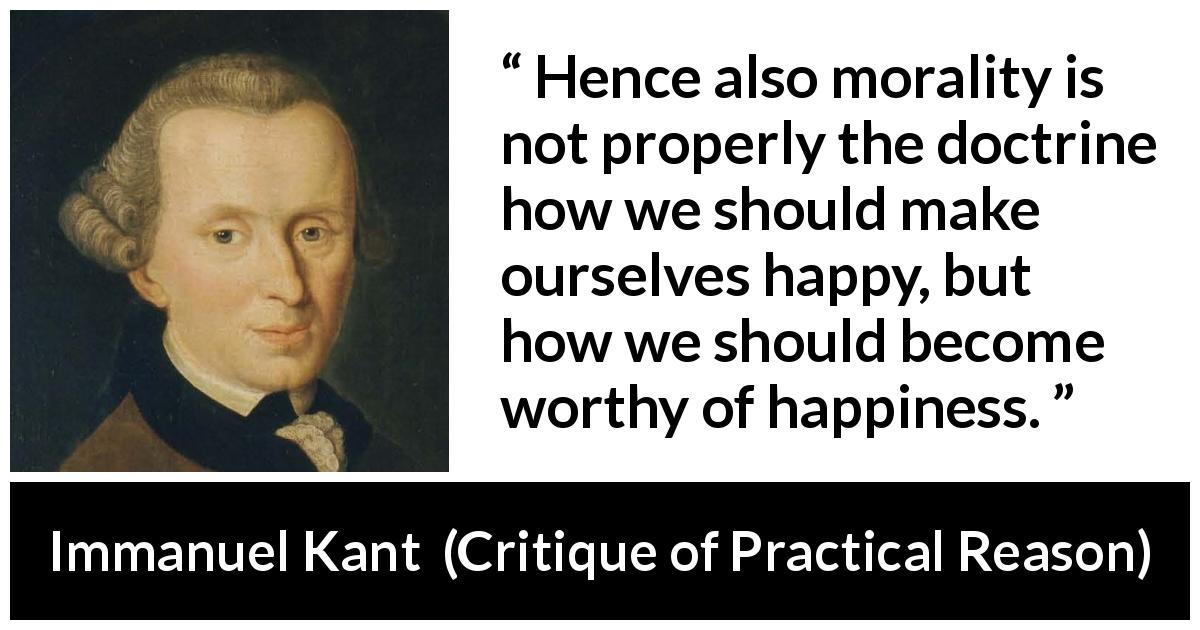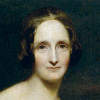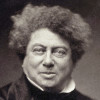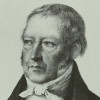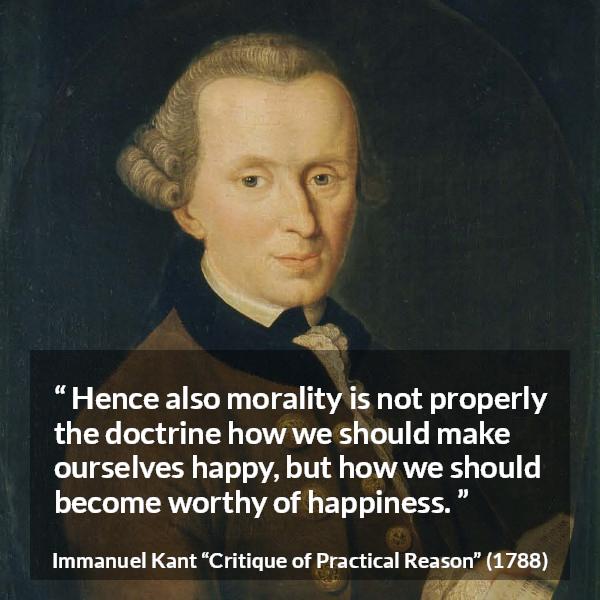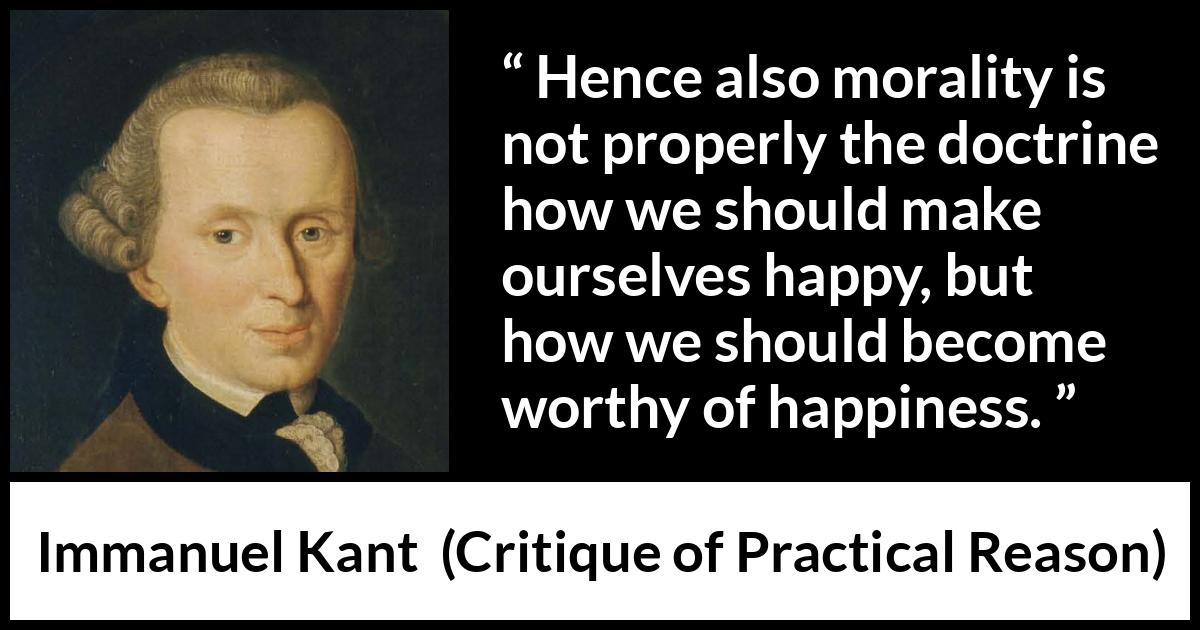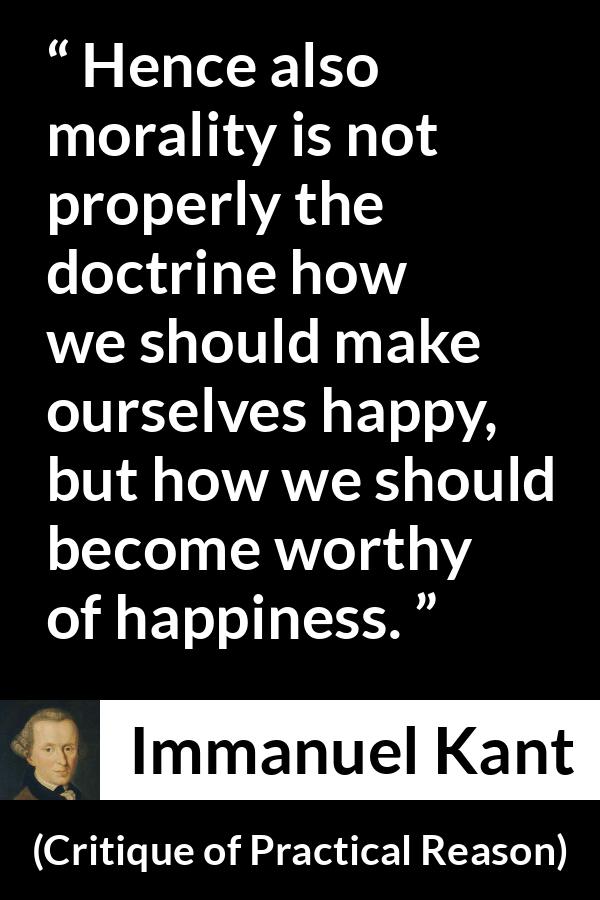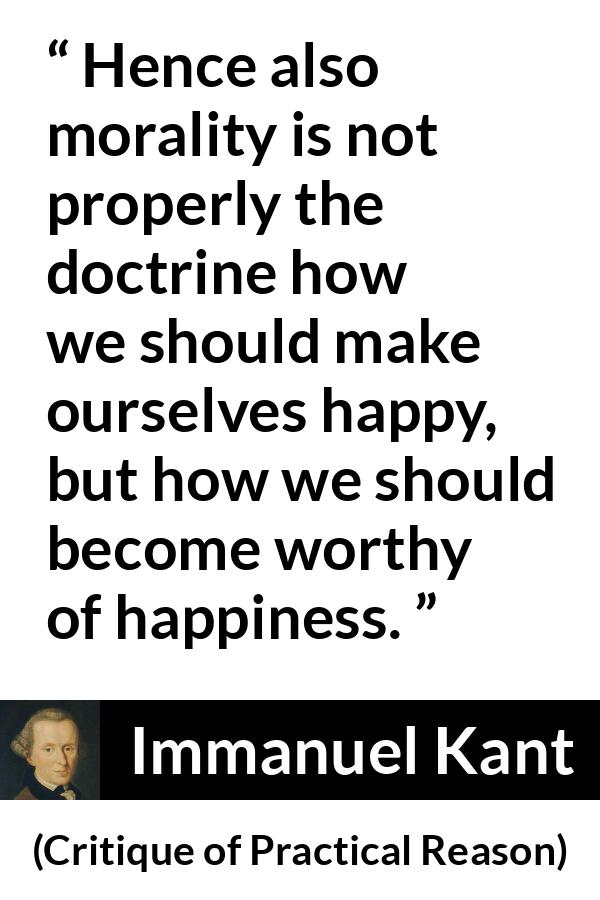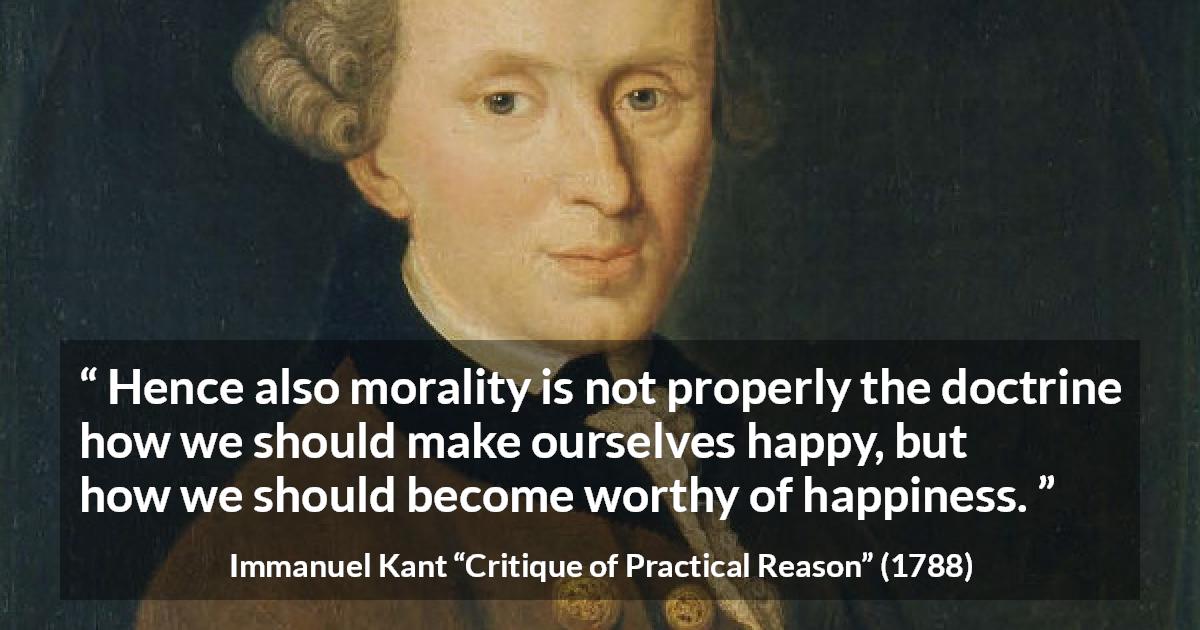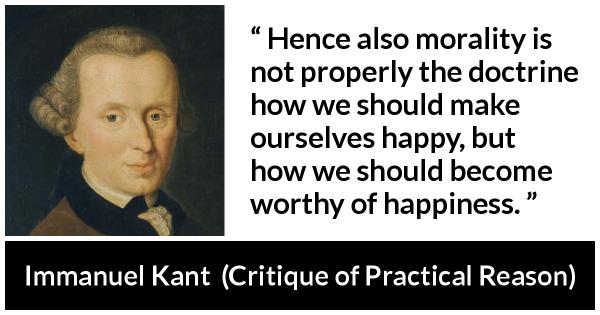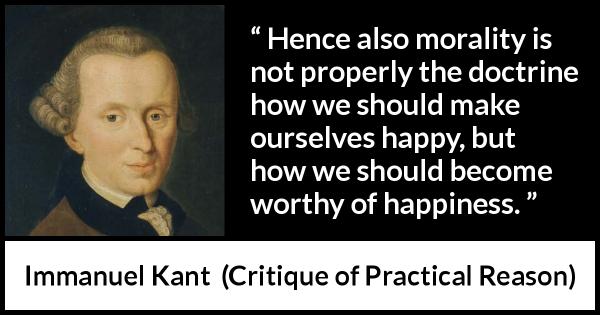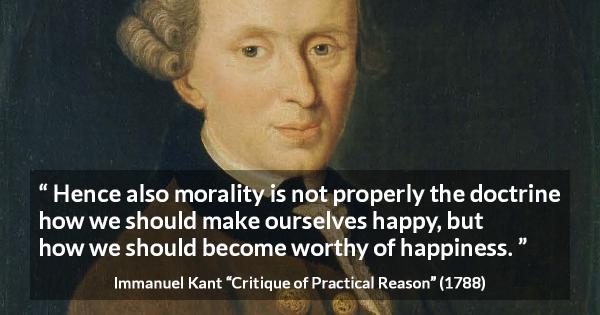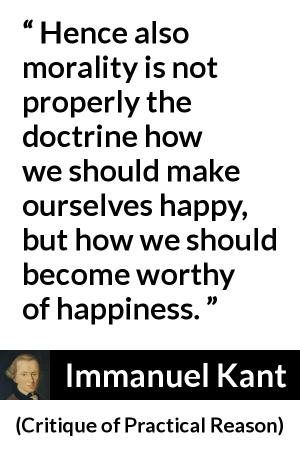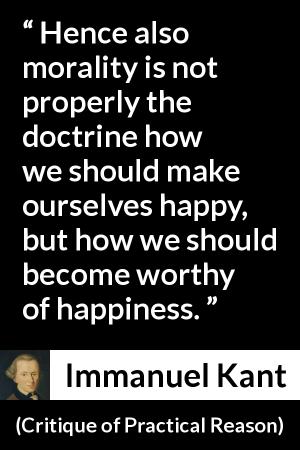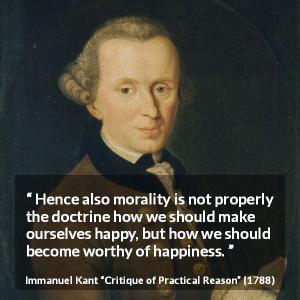“ Hence also morality is not properly the doctrine how we should make ourselves happy, but how we should become worthy of happiness. ”
Immanuel Kant, Critique of Practical Reason (1788). copy citation
| Author | Immanuel Kant |
|---|---|
| Source | Critique of Practical Reason |
| Topic | happiness morality doctrine |
| Date | 1788 |
| Language | English |
| Reference | |
| Note | Translated by Thomas Kingsmill Abbott |
| Weblink | http://www.gutenberg.org/cache/epub/5683/pg5683-images.html |
Context
“But I cannot hope to effect this otherwise than by the harmony of my will with that of a holy and good Author of the world; and although the conception of the summum bonum as a whole, in which the greatest happiness is conceived as combined in the most exact proportion with the highest degree of moral perfection (possible in creatures), includes my own happiness, yet it is not this that is the determining principle of the will which is enjoined to promote the summum bonum, but the moral law, which, on the contrary, limits by strict conditions my unbounded desire of happiness.
Hence also morality is not properly the doctrine how we should make ourselves happy, but how we should become worthy of happiness. It is only when religion is added that there also comes in the hope of participating some day in happiness in proportion as we have endeavoured to be not unworthy of it.
A man is worthy to possess a thing or a state when his possession of it is in harmony with the summum bonum.” source
Hence also morality is not properly the doctrine how we should make ourselves happy, but how we should become worthy of happiness. It is only when religion is added that there also comes in the hope of participating some day in happiness in proportion as we have endeavoured to be not unworthy of it.
A man is worthy to possess a thing or a state when his possession of it is in harmony with the summum bonum.” source
